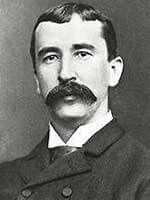Bernard Bailyn
American historian, author, and academic
Lived from: 1922 - 2020
Category: History and sociology | Writers (Contemporary)
Born: 9 september 1922 Died: 7 august 2020
Quotes 1 till 20 of 23.
-
That by 1774 the final crisis of the constitution, brought on by political and social corruption, had been reached was, to most informed colonists, evident;
The Ideological Origins of the American Revolution Ch. IV, THE LOGIC OF REBELLION, p. 132― Bernard Bailyn -
The full bibliography of pamphlets relating to the Anglo-American struggle published in the colonies through the year 1776 contains not a dozen or so items but over four hundred;
The Ideological Origins of the American Revolution FOREWORD, p. v― Bernard Bailyn -
At first the relevance of chattel slavery to libertarian ideals was noted only in individual passages of isolated pamphlets.
The Ideological Origins of the American Revolution Ch. VI, THE CONTAGION OF LIBERTY, p. 237― Bernard Bailyn -
Everyone knew that democracy-direct rule by all the people-required such spartan, self-denying virtue on the part of all the people that it was likely to survive only where poverty made upright behavior necessary for the perpetuation of the race.
The Ideological Origins of the American Revolution Ch. III, POWER AND LIBERTY A THEORY OF POLITICS, p― Bernard Bailyn -
In effect the people were present through their representatives, and were themselves, step by step and point by point, acting in the conduct of public affairs. No longer merely an ultimate check on government, they were in some sense the government.
The Ideological Origins of the American Revolution Ch. V, TRANSFORMATION, p. 173― Bernard Bailyn -
In England the practice of virtual representation provided reasonably well for the actual representation of the major interests of the society, and it raised no widespread objection.
The Ideological Origins of the American Revolution Ch. V, TRANSFORMATION, p. 167― Bernard Bailyn -
In no obvious sense was the American Revolution undertaken as a social revolution.
The Ideological Origins of the American Revolution Ch. VI, THE CONTAGION OF LIBERTY, p. 302― Bernard Bailyn -
It was an elevating, transforming vision: a new, fresh, vigorous, and above all morally regenerate people rising from the obscurity to defend the battlements of liberty and then in triumph standing forth, heartening and sustaining the cause of freedom everywhere.
The Ideological Origins of the American Revolution Ch. V, TRANSFORMATION, p. 160― Bernard Bailyn -
Never had Parliament or the crown, or both together, operated in actuality as theory indicated sovereign powers should.
The Ideological Origins of the American Revolution Ch. V, TRANSFORMATION, p. 203― Bernard Bailyn -
On the evening of October 14, 1774, the Massachusetts delegates were invited to Carpenters' Hall by a group of Philadelphians to do a little business.
The Ideological Origins of the American Revolution Ch. VI, THE CONTAGION OF LIBERTY, p. 268― Bernard Bailyn -
The categories within which the colonists thought about the social foundations of politics were inheritances from classical antiquity, reshaped by seventeenth century English thought.
The Ideological Origins of the American Revolution Ch. VI, THE CONTAGION OF LIBERTY, p. 273― Bernard Bailyn -
The classics of the ancient world are everywhere in the literature of the Revolution, but they are everywhere illustrative, not determinative, of thought.
The Ideological Origins of the American Revolution Ch. II, SOURCES AND TRADITIONS, p. 26― Bernard Bailyn -
The fact that the ministerial conspiracy against liberty had risen from corruption was of the utmost importance to the colonists.
The Ideological Origins of the American Revolution Ch. IV, THE LOGIC OF REBELLION, p. 138― Bernard Bailyn -
The idea of sovereignty current in the English speaking world of the 1760's was scarcely more than a century old. It had first emerged during the English Civil War, in the early 1640's, and had been established as a canon of Whig political thought in the Revolution of 1688.
The Ideological Origins of the American Revolution Ch. V, TRANSFORMATION, p. 198― Bernard Bailyn -
The most powerful presentations were based on legal precedents, especially Calvin's Case (1608), which, it was claimed, proved on the authority of Coke and Bacon that subjects of the King are by no means necessarily subjects of Parliament.
The Ideological Origins of the American Revolution Ch. V, TRANSFORMATION, p. 225― Bernard Bailyn -
The primary function of a constitution was to mark out the boundaries of governmental powers-hence in England, where there was no constitution, there were no limits (save for the effect of trail by jury) to what the legislature might do.
The Ideological Origins of the American Revolution Ch. V, TRANSFORMATION, p. 182― Bernard Bailyn -
The theory of politics that emerges from the political literature of the pre-Revolutionary years rests on the belief that what lay behind every political scene, the ultimate explanation of every political controversy, was the disposition of power.
The Ideological Origins of the American Revolution Ch. III, POWER AND LIBERTY A THEORY OF POLITICS, p― Bernard Bailyn -
The turning point was the Tea Act and the resulting Tea Party in Boston in December 1773.
The Ideological Origins of the American Revolution Ch. IV, THE LOGIC OF REBELLION, p. 118― Bernard Bailyn -
The wielders of power did not speak for it, nor did they naturally serve it. Their interest was to use and develop power, no less natural and necessary than liberty but more dangerous.
The Ideological Origins of the American Revolution Ch. III, POWER AND LIBERTY A THEORY OF POLITICS, p― Bernard Bailyn -
Up and down the the still sparsely settled coast of British North America, groups of men-intellectuals and farmers, scholars and merchants, the learned and the ignorant-gathered for the purpose of constructing enlightened governments.
The Ideological Origins of the American Revolution Ch. VI, THE CONTAGION OF LIBERTY, p. 231― Bernard Bailyn
All Bernard Bailyn famous quotes and sayings you will always find on greatest-quotations.com
Subjects in these quotes:
Similar authors
-
 Barbara W. Tuchman
Barbara W. Tuchman
American historian 64 -
 Carroll Quigley
Carroll Quigley
American historian and theorist 48 -
 Carter G. Woodson
Carter G. Woodson
American historian, author and journalist 31 -
 Henry Brooks Adams
Henry Brooks Adams
American historian 21 -
 Albert Bushnell Hart
Albert Bushnell Hart
American historian, writer, and editor 15 -
 Bruce Catton
Bruce Catton
American historian and journalist 13 -
 Daniel J. Boorstin
Daniel J. Boorstin
American historian 12 -
 George Bancroft
George Bancroft
American historian 8
 Henry Brooks Adams
Henry Brooks Adams